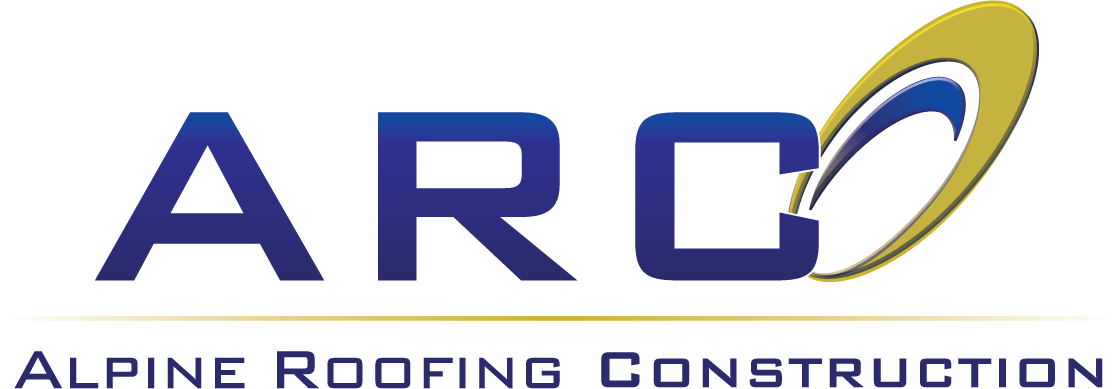Water is an incredible force. Gently flowing in a lazy stream, you may not give it much thought. However, it becomes a destructive force to be reckoned with when the temperature drops and it starts to freeze. While the ice on your driveway is dangerous for family and friends, the ice on your roof is dangerous for your home. The experts at Alpine Roofing Construction explain the effects of ice on roof structures.
What is an Ice Dam?
When snow on the roof melts, it must be able to drain off the roof. If a block of ice, or a dam, forms at any point of the roof, it can block melting snow and cause the water to back up. As the water sits on the roof, it will eventually migrate between shingles, through metal roof seams, and into your home. Damaging walls and insulation, ice dams can cause substantial damage to your home.
What Conditions Cause Ice Dams?
It doesn’t take a lot of snow for an ice dam to form. It starts with heat loss from inside the home and a cover of snow on the roof. As the outdoor temperatures rise above freezing, the snow starts to melt and move down the roof. Night falls, and the water freezes again. Ice dams result, and you may not know until you find water stains on the ceiling much later when the ice begins to melt.
Protection Against Ice Dams
Your professional Fort Worth roofing companies know how important it is to protect your home from ice dams. When replacing a roof, they will make sure that attic ventilation is corrected to avoid dams. They will also install special ice guard membranes along the lower section of roofing to prevent leaks should an ice dam still form.
If you have an older roof and notice a buildup of snow and ice along the edges of the roof, you should call Alpine for commercial or residential roof repair. They can bring out special rakes to knock the snow loose and remove the ice without damaging your roof. If the roof is already leaking, they can take steps to protect the interior of your home until the roof can be fixed. Protect your home by calling Alpine Roofing Construction at (817) 409-8975 at the first sign of a problem.
